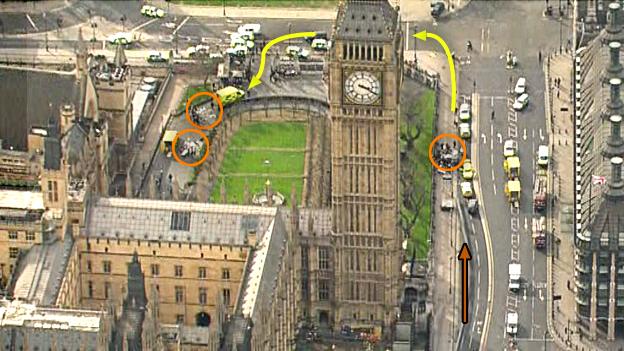Westminster attack survivor tells of abuse from online trolls
- Published
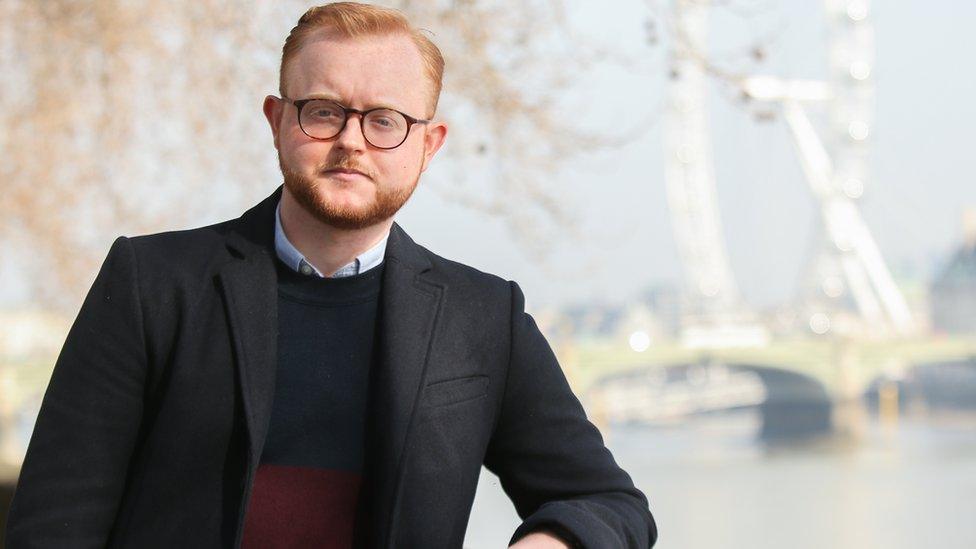
Travis Frain said the impact of the atrocity "never leaves" him
A survivor of the Westminster terror attack has spoken of the "incredibly disconcerting" abuse he receives from online trolls almost five years later.
Travis Frain, 24, suffered serious injuries including a broken leg after he was mown down by a car driven by Khalid Masood on 22 March, 2017.
Footage of him walking away from the scene emerged online afterwards.
Mr Frain, from Darwen, Lancashire, said he received death threats from people accusing him of faking his injuries.
Speaking ahead of the fifth anniversary of the atrocity, he said: "You've received quite bad injuries, you're immobile.
"Then to be receiving threatening messages like that is incredibly disconcerting. It's a really bizarre situation."
Masood, 52, was shot dead by police after he killed four people and injured 50 more when he ploughed into crowds on the bridge before stabbing PC Keith Palmer.
Mr Frain, then aged 19, was on a university trip to London with his friends at the time.
The Edge Hill University undergraduate, who also suffered shrapnel wound and broken fingers, managed to pick himself up and hobble away before being taken to hospital.
"It could have been the adrenaline, could have been the shock," he said.
"All I know is bizarrely I was up and walking after I was hit by the car. That's something that even today I don't have an explanation for."
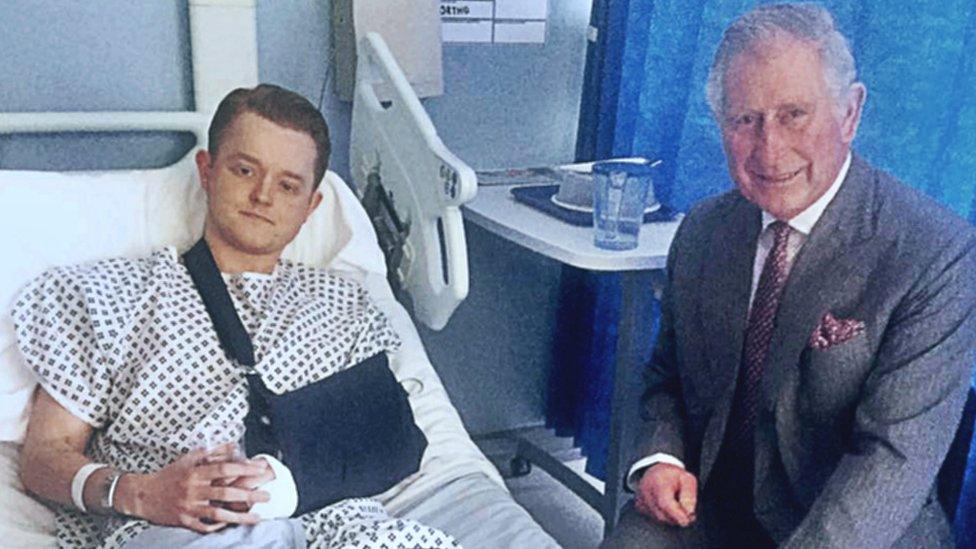
Mr Frain was visited in hospital by Prince Charles following the attack
Mr Frain revealed the abuse has persisted over the past five years, especially when he speaks publicly about the incident, with the last message being sent as recently as November.
"I think a lot of the people who are sending these messages might already be off the deep end so to speak," he said.
"But I'd just say to them 'get in touch' and I'd say 'let's have a conversation about it'".
He added that despite the challenges he has managed to make progress in coming to terms with the atrocity by educating himself about the complex causes of terrorism.
The PhD student has now set up the Resilience in Unity Project, a counter-radicalisation platform featuring the voices of terrorism survivors.

Why not follow BBC North West on Facebook, external, Twitter, external and Instagram, external? You can also send story ideas to northwest.newsonline@bbc.co.uk
Related topics
- Published5 November 2021
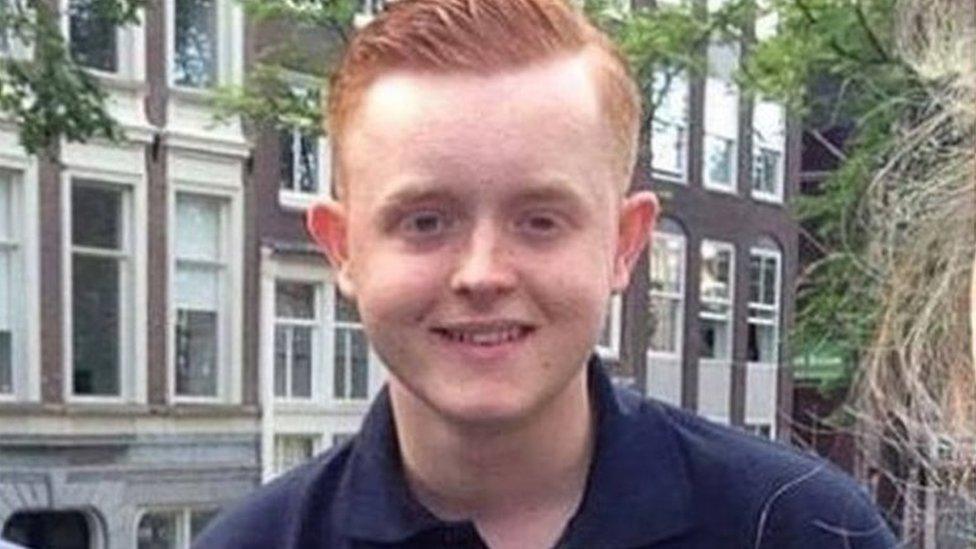
- Published24 March 2017
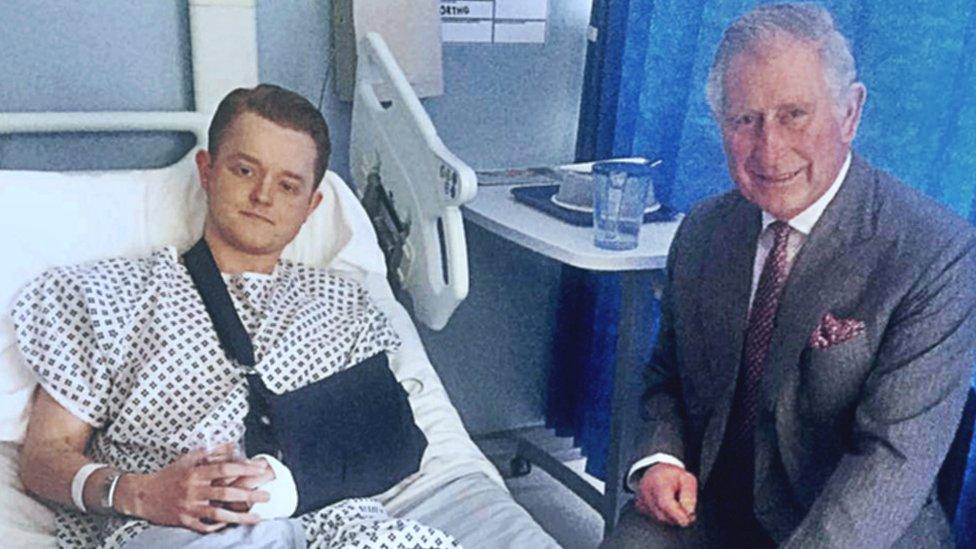
- Published23 March 2017
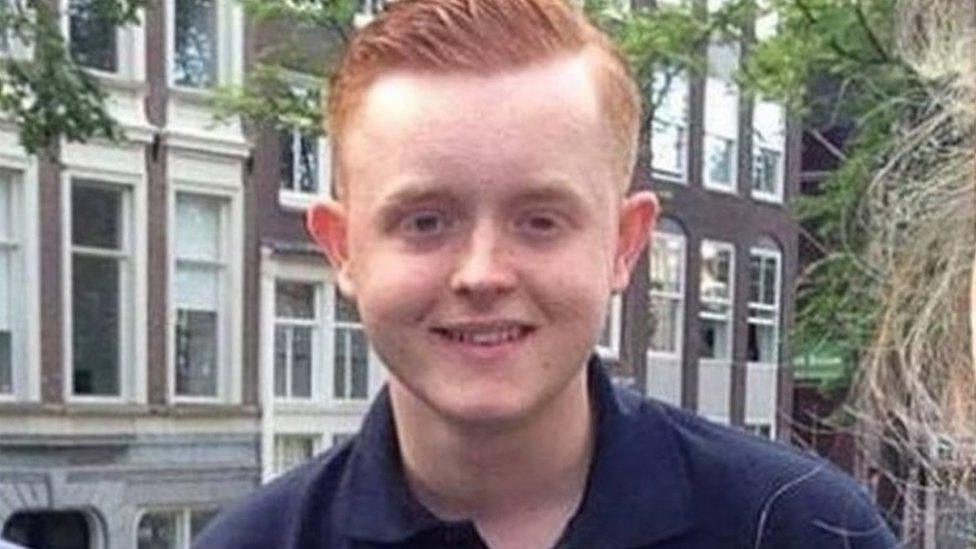
- Published26 March 2017
- Published23 March 2017
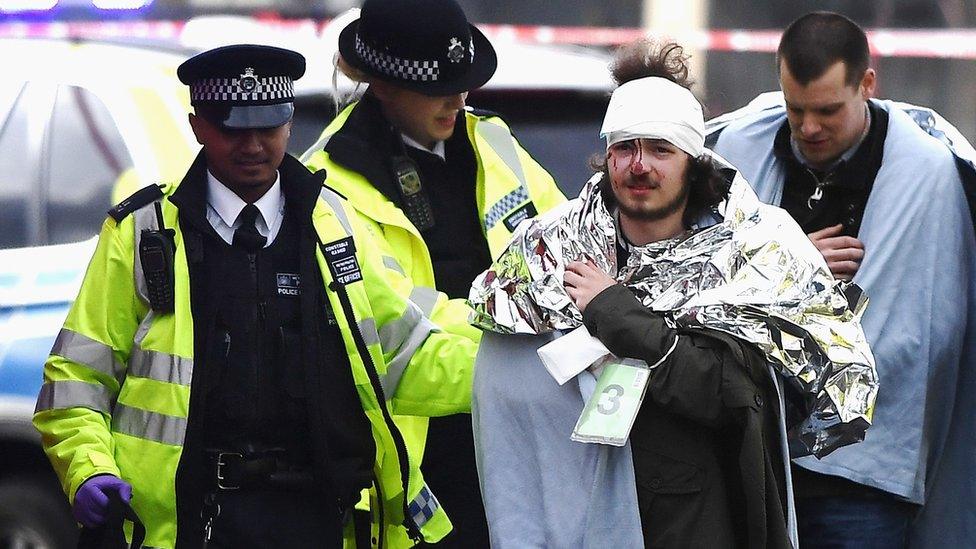
- Published23 March 2017
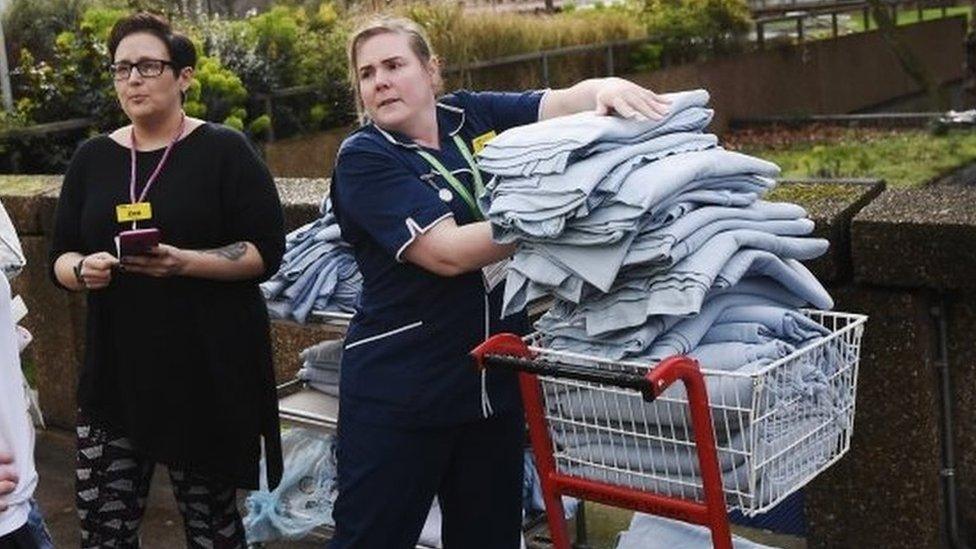
- Published7 April 2017
